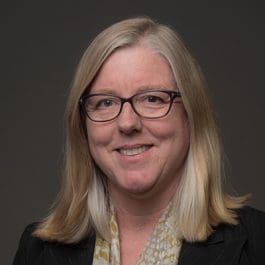Supporting people with dementia to live at home

Seniors Care: Industry Challenges
By Jennifer Baumbusch, former director of the MHLP in Seniors Care
One of the most pressing challenges in seniors care is determining how best to support people with dementia to live in their homes as long as possible, and, if it’s their wish, to the end of life. That’s a significant challenge, given demographic trends and the ever-increasing numbers of seniors and seniors with dementia in our communities.
The BC Dementia Guide anticipates that more than 87,000 people in BC will be living with dementia by 2024. While many can function independently, others need support with daily tasks.
Family members and friends play important roles in helping their loved ones remain at home. Yet as the support needs of seniors with dementia become more acute, those caregivers are stretched thin.
Long-term care homes may be an option, but given the disparity between the number of spaces available and the need for those spaces, it is simply not feasible to think that long-term care alone can help us address this challenge. (A report from the B.C. Care Providers Association in May 2019, for example, suggested that BC is already short 3,000 long-term care spaces, a number they predict will rise by 1,000 to 2,000 spaces per year over the next 15 years.)
Community-based services and support are one way to help those with dementia live in their communities. Yet the level of services and support available all too often fails to meet the needs of either those with dementia or their caregivers. Options vary from community to community, and while some services may be publicly funded, others are not and may therefore be out of economic reach of those who need them most.
There are, however, some promising initiatives that could be expanded, enhanced and complemented by other innovative services.
Adult day programs offer a range of services, from basic health care to social and recreational activities. Providing extended hours for these programs beyond a few hours in the middle of the day – as well as ensuring programs are available on weekends – would go a long way to supporting people with dementia and enabling their family-member caregivers to continue their employment schedules.
Expanding the number of community bathing programs is another way to help seniors with dementia age in place. These programs bring seniors to a central location – usually a long-term care home – for assistance with bathing and grooming.
There’s also the broader need to make our communities more accessible and safer for people with dementia. The Alzheimer Society of BC’s dementia-friendly communities initiative includes a toolkit for municipalities to foster the social inclusion of people with dementia as they are out and about banking, shopping and heading to activities or appointments.
With the growing numbers of seniors and seniors with dementia, it’s definitely time to move on from what has often been an ad hoc approach to one that is more holistic and integrated.
To that end, the Master of Health Leadership and Policy program in Seniors Care offers significant opportunities for professionals interested in these issues to explore innovative solutions.
The backgrounds of our current and past students represent the range of disciplinary expertise that is needed to have an impact – while many of our students are working in seniors care and health care, others have come from private industry, banking, accounting and real estate. Over the course of the 12-month program, our students consider, reflect upon and generate a range of innovative ideas that could help transform the way we provide support services to seniors with dementia, as well as have other lasting impacts on seniors care in general.
Seniors Care
Move your career forward as a health-care specialist dedicated to improving patient outcomes and fostering the well-being of seniors.
Read MoreFeatured Faculty and Staff

DR. JENNIFER BAUMBUSCH
Featured Faculty and Staff

DR. JENNIFER BAUMBUSCH
Seniors Care
Move your career forward as a health-care specialist dedicated to improving patient outcomes and fostering the well-being of seniors.
Read MoreFeatured Alumni

Jackie Reiners
For Jackie Reiners, the MHLP in Seniors Care was an opportunity to develop the skills that would enable her to move into higher-level executive positions. Nine months into the program and while still a student, she achieved her goal and began a new role as executive director of a long-term care community.

